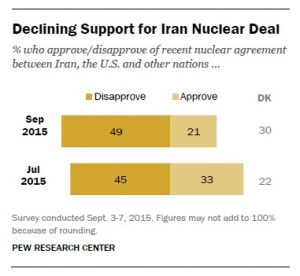By Jon Sutz, editor, SaveTheWest

When they were in the majority, Senate Democrats spoke out vehemently against the use of the filibuster, as a subversive means to cut off debate – and in some cases, to prevent a vote altogether. They claimed that the American people deserve and must have the right to see their Senators openly debate the merits of a proposed piece of legislation, and then to have an up-or-down vote, especially when it pertains to something that the American people fall heavily on one side or the other. A sampling of these quotes are listed further down in this article.
Now that they are in the minority, however, Senate Democrats, led by Harry Reid (D-NV) are saying and doing the exact opposite. If their hypocritical actions only pertained to a low-priority, obscure item of legislation, no one would care much. Unfortunately, Senate Democrats are using the filibuster to cut off debate concerning what is likely the most consequential piece of national security legislation of our lifetimes, concerning the prospect of giving a $150 in cash to Iran, the #1 state sponsor of terrorism, along with a pathway to nuclear weapons – and to prevent a simple up-or-down vote on it. In effect, these Democrats have become lobbyists for the Iranian regime, seeking to scuttle a simple vote on a legitimately-proposed piece of legislation that could well prevent World War III. Here’s how we got to this point:

The Senate Republicans drafted legislation that would stop the treaty between the U.S. and other major world powers with Iran, until Iran meets certain, much stricter requirements for inspections, compliance and verification. (And yes, the Republicans said, it would be nice if Iran’s chief mullah, Ayatollah Ali Khamenei, would stop leading thousands in chants of “Death to America!” (video), and openly threatening to wipe Israel off the face of the Earth.)
According to our Constitution, a treaty can pass only with a 2/3 majority vote in the Senate. Thanks to rule-changing by both Democrats and Republicans, that was modified in this instance by not calling the treaty a treaty, and requiring sixty votes to bring the legislation to the well off the Senate for a full debate, and simple majority. The Republicans could only muster 58 of those votes; 42 Democrats acted to scuttle the whole process, preventing any debate on the floor of the Senate, and preventing it from going to a simple majority vote.
 The American people, however, are strongly against this treaty deal. The most recent Pew Research survey (right), on Sept. 8, showed that by a 49%-21% margin, Americans are against passage of this “deal.” And today, a CNN/ORC survey revealed that 9 in 10 Americans believe Iran is likely to violate the terms of this “deal.”
The American people, however, are strongly against this treaty deal. The most recent Pew Research survey (right), on Sept. 8, showed that by a 49%-21% margin, Americans are against passage of this “deal.” And today, a CNN/ORC survey revealed that 9 in 10 Americans believe Iran is likely to violate the terms of this “deal.”
Knowing all this, Senate Democrats chose to deny the American people that which they so passionately argued for, a mere handful of years ago.
A sampling of senior Senate Democrat arguments against the use of the filibuster by the minority to block debates and votes
 “I’m at the point where we need to do something to allow government to function,” Reid said when asked if he would consider using the nuclear option, a controversial procedural tactic for changing Senate rules. The proposed rules change would not affect Supreme Court nominees, said Democratic sources. The tactic would allow Democrats to change the Senate’s rules with a simple-majority vote. “The Founding Fathers never had any place in the Constitution about filibusters or extended debate,” Reid told reporters. “This country operated fairly well for 140 years without filibuster protection.”
“I’m at the point where we need to do something to allow government to function,” Reid said when asked if he would consider using the nuclear option, a controversial procedural tactic for changing Senate rules. The proposed rules change would not affect Supreme Court nominees, said Democratic sources. The tactic would allow Democrats to change the Senate’s rules with a simple-majority vote. “The Founding Fathers never had any place in the Constitution about filibusters or extended debate,” Reid told reporters. “This country operated fairly well for 140 years without filibuster protection.”
Reid said he will insist that Republicans allow up-or-down votes on all three of Obama’s nominees to the D.C. Circuit Court of Appeals: Patricia Millet, an appellate litigator; Cornelia Pillard, a professor at Georgetown Law School; and Robert Wilkins, a district court judge for the District of Columbia. “Ultimately, this is about removing the last check in Washington against complete abuse of power,” he added.
– Sen. Harry Reid (D-NV), cited in Reid’s Finger on Nuclear Button, by Alexander Bolton, The Hill, November 19, 2013.
“What I say to that, Robert, is I’m not afraid of democracy. I’m not afraid of majority rule as long as the minority has certain rights, the rights to offer amendments. Not the right to win those amendments, but the right to offer those amendments and to have a debate and a vote on those amendments. I’ve always felt that way. But I do not believe that the minority has some right to absolutely stop everything.”

– Sen. Tom Harkin (D-IA), November 13, 2013.
The filibuster is an effort to talk something to death.
– Sen. Dick Durbin (D-IL), March 21, 2010.
“We shouldn’t deny the right of the minority to filibuster, but we need to do a much better job of making them own it. That way, the American people could figure out who is being obstructionist and who is willing to compromise.”
– Claire McCaskill (D-MO), October 15, 2012.
“Robust debate is necessary in a democratic society. Instead, our discourse has been relegated to media spin by expert entertainers.”
– Douglas Wilder, former Democrat governor of Virginia, August 3, 2011.
“President Barack Obama has it right – there is a lot to change about Washington. The problem is, not much will get changed unless we confront the runaway filibuster in the U.S. Senate.”
– “The tyranny of the minority,” by Peter Fenn, leading Democrat strategist, Politico, March 19, 2009.
And it turns out that even one of the Democrats who voted to filibuster the Iran treaty deal, on September 2, Sen. Chris Coons (D-CT), said the Democratic leadership should allow an up-or-down vote – which he himself then prevented:
“I think it would be really regrettable if we didn’t ultimately go to the floor and cast our votes for or against this deal.”
Do you want to make your voice known to Democrat Senators?
If you’d like to make the Senate Democrats aware of your thoughts on this matter, the time is now. Apparently the final vote on the Iran treaty deal will occur tomorrow, September 17.
- Here is a web page that contains a directory of all Senators and their contact information.
- Or, you can call 202-224-3121 to be connected to individual Senators’ offices. Please be polite and concise though; to do otherwise will likely have the opposite effect you hope for.
.
.
.
